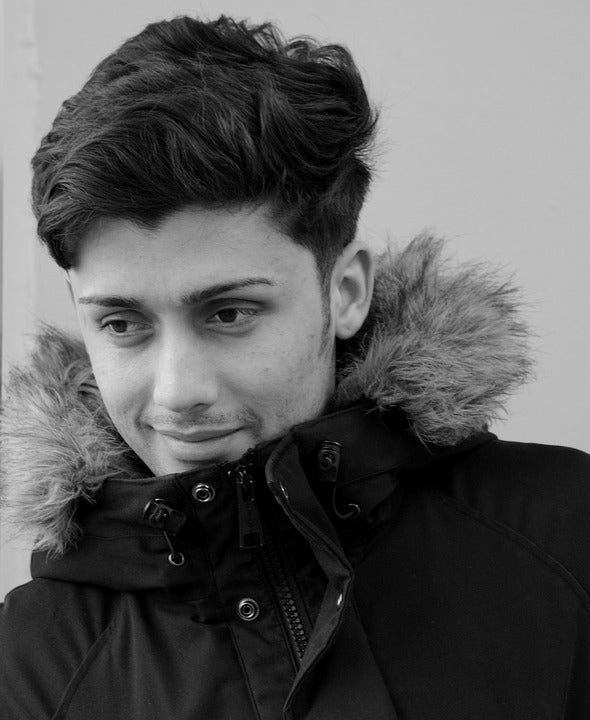The Two Defining Characteristics of the Exceptionally and Profoundly Gifted : A Distinctive and Directive Sense of Self and the Capacity to Level Up

American profound giftedness expert Martha Morelock wisely stated that:
The tendency to define giftedness as behaviors achievement, products, or school placements external to the individual, necessarily misses the essence of giftedness -- how it alters the meaning of the life experience for the gifted individual.
The Integrated Practice for the Gifted™ (IPG) model, which is the bedrock of the research and the practice here at the Daimon Institute, reaches beyond this statement of Morelocks to address how meaning-making occurs for the exceptionally gifted human being. The uncommon meaning-making of the exceptionally and profoundly gifted springs from a distinctive and directive Self which is fed by and contoured by higher cognitive capacity levels. In fact, the EPG child reaches higher levels of cognitive functioning far earlier than their age peers, and earlier than more mildly gifted chidlren.
We'll start with consideration of the Self of the exceptionally or profoundly gifted child or adult.
A DISTINCTIVE AND DIRECTIVE SENSE OF SELF
In order to determine how profoundly gifted children or adults make sense of the world and make sense of their experiences, we must enter the inner world of that exceptional human being. In so doing, we come face-to-face with the dynamic Self of the EPG person: a world of the unconscious as well as conscious feeling and thought. This Self, or core essence, is central to what makes us individuals, different from others. For the exceptionally or profoundly gifted person, this sense of self is a not-to-be-ignored imperative, an internal directive demanding attention and forcing one's compliance or participation to its dictates as if ones very life depended on it.

This acutely perceived sense of Self occurs early in the EPG person's life and, if circumstances support the whole child, it is the ballast and trusted compass for the developing child throughout life.
However, suppose the child is thwarted due to lack of challenging and appropriate academic work, or meager opportunities for authentic creative or emotional expression, or a dearth of true peers for normal and healthy socialization. In that case, this core Self may founder, and all parts of the developing child will suffer as a result.
Profoundly gifted Canadian, Kai (now 40 years old), reflects on his pre-teen sense of Self:
I used to be able to exercise all aspects of my nature (wry grin). This was before a teacher ridiculed me in front of the whole school for something that I did not do. I remember developing the capacity for lucid dreaming. It was the capacity for free-flowing, connection to my absolute nature. I gave it up after that incident.

At a later date, Kai speaks of regenerating his sense of Self as a young adult, after a protracted experience of major depression:
I constructed a new Self, -- a new personality -- from the bits I had on hand. I put it together. It was a bit wiser. A bit fuller. But (wry grin) I was still lacking in some areas. That was the toughest part, that was very tough. I knew the new Self had to be integrated towards wholeness, a different form. I knew I needed to reintegrate. I knew I had to consciously and physically work toward wholeness integrating my various systems: the analytical, the philosophical, the academic, the emotional, my physical Self. I have always been defined by wholeness, by the need for consensus, by a sense of inter-relatedness. My new Self needed to be crafted according to those principles.

When we push conventional success and achievement (e.g., good grades, high status, high paying jobs, stability), we push children away from who they are. We send signals that their emerging sense of Self must act in the service of externally constructed notions of well-being. We pressure children to perform and achieve on our terms and we access their worth in the currency of accomplishments. In so doing, we squander their internal motivation. We relegate their sense of Self to a bit part in a theater of achievement. Perhaps we fear that our children will be unsuccessful. Perhaps we fear that we are inadequate parents of these exceptional children. What we must do is pivot from an achievement-centric model of child-rearing to a child-centered model. In the words of Piechoswski and Grant: "We must allow our children their route to self-actualization; otherwise, no self-actualization is possible".
THE ABILITY TO LEVEL UP
A cognitive-developmental cluster of research articulates the increasingly complex assumptions or structures people use to make meaning of their experience. This research focuses on the beliefs about the nature, limits, and certainty of knowledge that guide how people think rather than what they think.
Constructivist developmentalists believe that human nature is dynamic, adaptable, and continuously evolving both individually and throughout history. We evolve through increasingly complex meaning-making orders as our capacity for critical thinking, and abstract thought matures. We level up, as circumstances enable our core ability to be activated and fully engaged.
Core beliefs of cognitive-developmental researches are:
(1) Learning is gradual for children, and new information gets more complex and developed as they get older
(2) Both nature and nurture are essential and coexist in learning and development
(3) The cognitive development of children happens in stages and is sequential.
Seminal developmental researcher, Jean Piaget (1950), studied the set of assumptions that guide us when we experience conflict with our assumptions about what we know or how we know. When the dissonance is substantial enough not to be assimilated into our current structure of thinking, individuals must revise their assumptions to accommodate the new experience. When successful, this revision results in more complex meaning-making.
This more complex meaning-making effects not just external conceptualizing in In our inner world we all move through qualitatively different ways of knowing who we are, how we view ourselves and how we believe the world works. As we encounter new ideas and experience, our ability to reason complexly strengthens and becomes more nimble. Our sense of ourselves deepens and broadens.

In the early years, innate maturation/differentiation processes (nature) launch each of us in a growth direction.
But, in order to grow successfully our children need adequate support from the environment (nurture as experienced through parenting, schooling and training, cultural and social conditioning). Without the right stimulus and the right opportunities and guidance their development will be stymied.
Exceptionally gifted children exhibit a high level of complexity and abstraction in their questions and responses, reflecting unparalleled perceptiveness and sensitivity to relationships and knowledge patterns.

